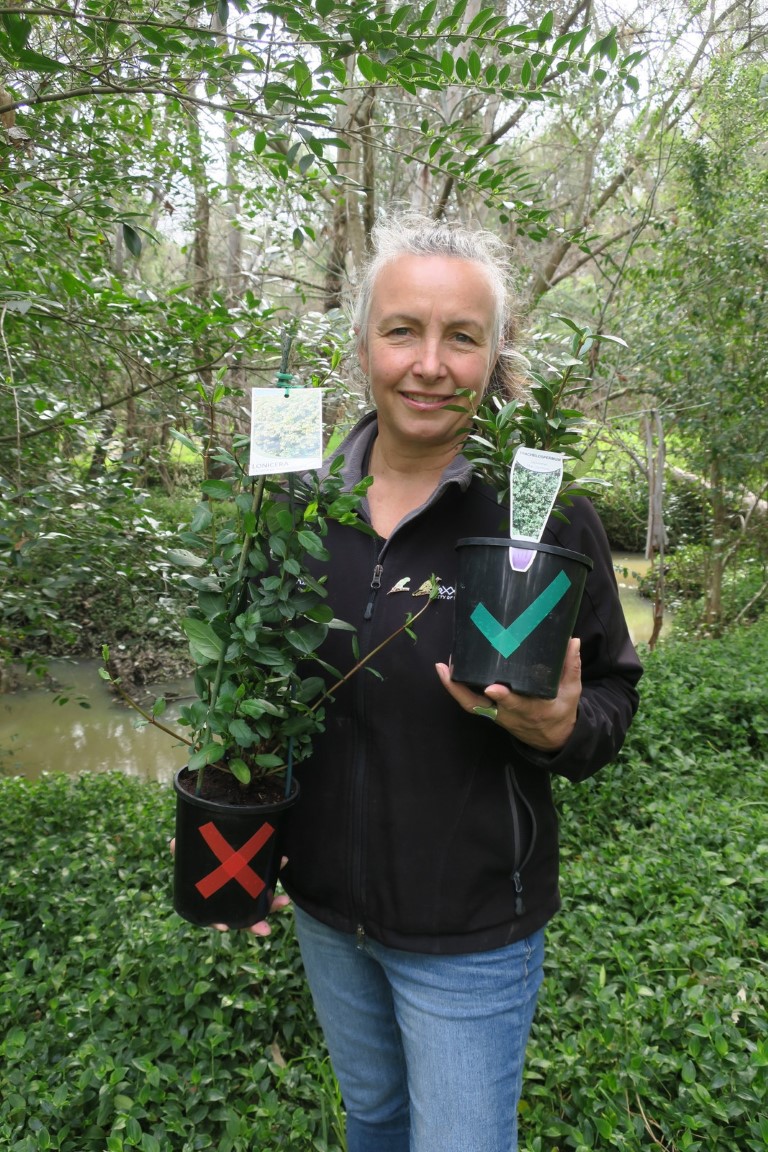By Lizette Salmon, Gardens 4 Wildlife Albury-Wodonga Project Officer
Lots of locals love gardening but some of us are unintentionally planting species that jump fence-lines and wreak havoc in our local parks and reserves.
In consultation with Wodonga Council and Parklands Albury Wodonga, Gardens 4 Wildlife Albury-Wodonga has developed a list of the fifteen most problematic local garden escapees.
The list includes popular groundcovers such as English ivy, Japanese honeysuckle and blue periwinkle that spread rapidly, outcompeting and suffocating native plants and reducing habitat for native wildlife.
They’re a massive headache and significant cost for councils, land managers and volunteers to manage. To make matters worse, they’re still being sold through local nurseries, fetes and markets.
These plants spread vigorously through their roots or seeds dispersed by wind, water and animals. Dumped garden waste is another source of spread.
Other problem plants include Cootamundra wattle, African and European olives, gazania and Italian/topped lavender. We urge locals not to purchase, plant or propagate the species on the list.
If they’re already in your garden, please consider management or removal. There are alternatives to these plants that still look great but won’t cause problems elsewhere.
A NSW study referenced by the NSW Environment Protection Agency found that almost half of that state’s threatened species and the majority of endangered ecological communities are threatened by weed invasion.
The critically endangered Darling Pea (Swainsona galegifolia) grows naturally in patches of Wodonga bushland but could perish if invaded by garden escapees.
Various locally-occurring orchid species such as the purple beard orchid, sun orchids and greenhoods are also threatened by garden escapees.
Garden escapees threaten native animals also, depriving some of their natural habitat and food sources.
To access the full list of problematic garden escapees with photos and suggested plant alternatives, visit: wodongalandcare.org.au/pmi
The Plant Me Instead project is coordinated by Gardens 4 Wildlife Albury-Wodonga, a Wodonga Urban Landcare Network program, supported by the Victoria Government as part of the Victorian Landcare Grants Program, as well as Wodonga Council.
Photo: Kim Radnell, City Services Administration Coordinator at Wodonga Council, surrounded by invasive wandering trad in a Wodonga park. In her right hand she’s holding Japanese honeysuckle – a garden escapee – and in her left a non-invasive alternative – Japanese star jasmine. Photo by Lizette Salmon.

